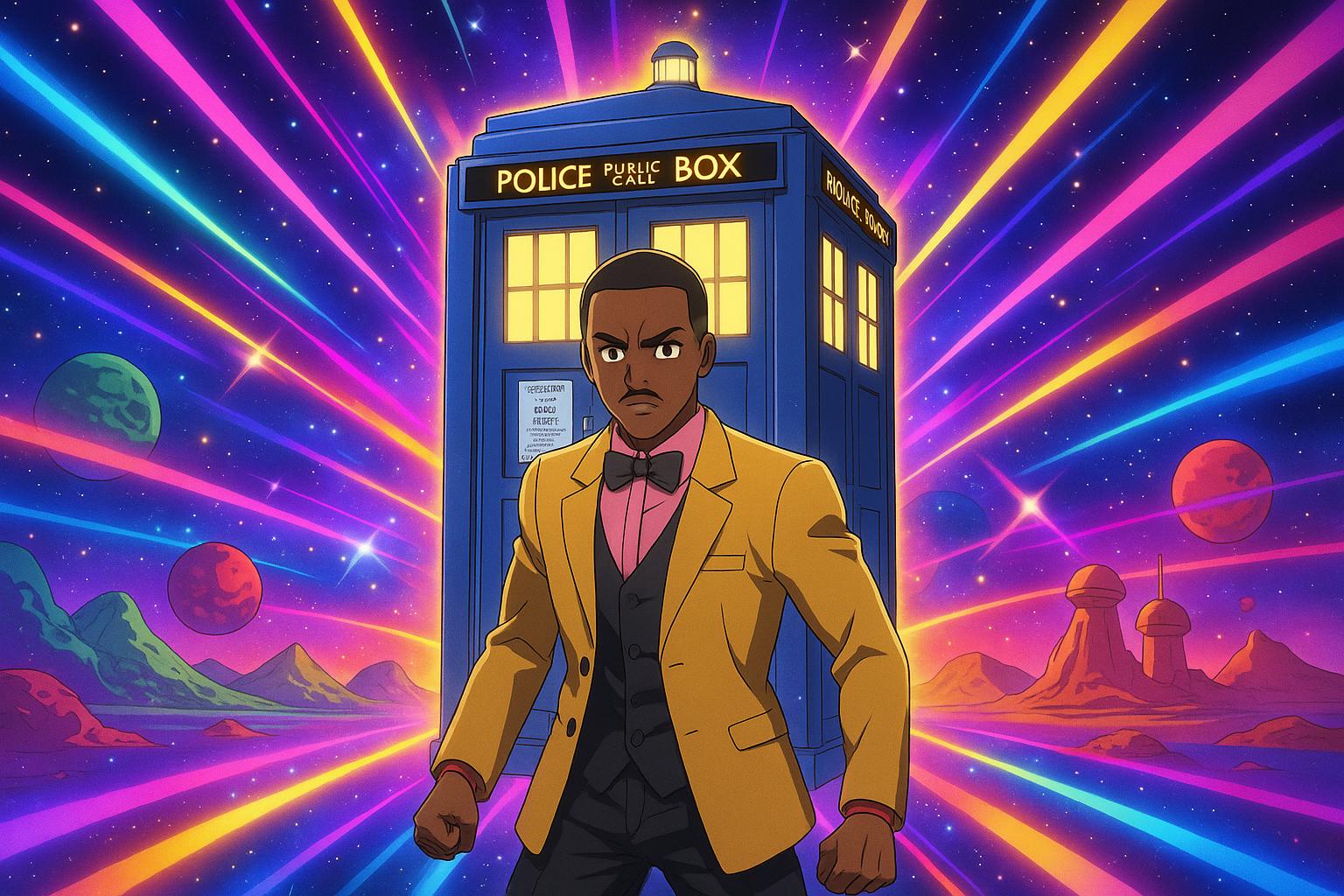In a remarkably vibrant episode of Doctor Who, the show seamlessly merged the whimsical spectacle of Eurovision with a darker narrative, all the while exploring themes of exploitation and moral ambiguity. Scripted by Juno Dawson, the episode, aptly titled "The Interstellar Song Contest," captures the essence of space fantasy while delivering a poignant critique of societal issues. The narrative opens on a joyful, campy note, showcasing a fictional interstellar competition that attracts contestants from 40 alien worlds, but veers sharply into the grim realities of terrorism, leaving an indelible mark on viewers.
As the Doctor, portrayed by Ncuti Gatwa, and his companion Belinda Chandra, played by Varada Sethu, navigate this chaotic world, the script invites audiences to reflect on various pressing themes. These include the harsh consequences of capitalist greed, exemplified by the alien planet's exploitation for resources, and the ongoing struggle against racist attitudes that threaten to dehumanise entire species. The emotional core of the episode is exemplified through Belinda's character, whose poignant journey underscores the personal toll of societal pressures. As she grapples with her identity alongside the Doctor, viewers witness the stark conflict when the Doctor confronts existential threats, showcasing his darker side as he wrestles with the moral implications of vengeance.
The collaboration between Doctor Who and Eurovision is significant—not merely as a gimmick but as an intersection of two beloved cultural phenomena. Showrunner Russell T Davies aptly described the episode as "Eurovision meets Die Hard," highlighting the high-stakes drama that unfolds amidst musical performances. This convergence is bolstered by the inclusion of four new songs composed by Murray Gold, contributing to the high production value and enriching the narrative landscape. The collaboration seems to resonate particularly well with fans, especially given Gatwa's simultaneous role as the UK's spokesperson for the Eurovision Song Contest. This dual involvement has sparked optimism about the show’s future, as speculation abounds regarding viewership data and potential renewals.
Gatwa's portrayal of the Doctor in this episode stands in striking contrast to the lighter moments brought by guest star Rylan Clark. Rylan’s appearance, marked by his self-deprecating charm, offers a refreshing comic interlude, yet the episode is ultimately anchored in themes of fear and moral reckoning. This portrayal is intensified further by the return of beloved characters like Carole Ann Ford as Susan, whose reappearance ignites a wave of nostalgia and speculation, adding layers of complexity to the series' extensive lore.
The episode also dives into the dynamics of the Doctor’s relationships, notably with Belinda, whose character has been crafted to challenge the Doctor rather than simply follow. This interaction allows for a more nuanced exploration of the Doctor’s character, as Belinda’s reactions to his rage effectively humanise a character often portrayed as larger than life. Such a portrayal creates a compelling contrast, particularly as the Doctor grapples with the existential weight of his choices—drawing viewers into the emotional gravity of the narrative.
As the episode unfolds, the visual storytelling is equally captivating, with the familiar backdrop of the Tardis juxtaposed against galactic competition. The faceless robot guards, a staple of Doctor Who, provide a classic touch, yet it is the emotional landscape crafted through dialogue and interaction that stands out. Here, Gatwa cements his position as a formidable Doctor, embodying both charisma and gravitas, which resonates powerfully with audiences.
The ambiguity layered within the episode invites speculation about future narratives, leaving viewers with intriguing questions and a tantalising sense of anticipation. As Doctor Who prepares to delve deeper into its multifaceted universe, the brilliance of "The Interstellar Song Contest" could well signify a pivotal moment for the series, opening doors to both humour and heartfelt reflection amidst the chaos of space adventures.
The convergence of cultural commentary and entertainment in this special episode not only entertains but also challenges audiences to reflect on broader societal implications. The vibrant celebration of creativity that began with Eurovision is here steeped in a darker undercurrent, offering a rich tapestry that draws on both tradition and contemporary issues.
As we await the season finale, the promise of further adventures is tantalisingly close. With a masterful blend of humour, adventure, and heartfelt themes, Doctor Who continues to resonate as a vital part of contemporary television, inviting fans to ponder what lies beyond the stars.
Reference Map
- Paragraph 1: [1], [2]
- Paragraph 2: [1], [4]
- Paragraph 3: [2], [3]
- Paragraph 4: [1], [4], [6]
- Paragraph 5: [1], [4], [5]
- Paragraph 6: [1], [3]
- Paragraph 7: [1], [6]
- Paragraph 8: [1], [2], [4]
- Paragraph 9: [1], [4]
- Paragraph 10: [1], [5]
Source: Noah Wire Services
